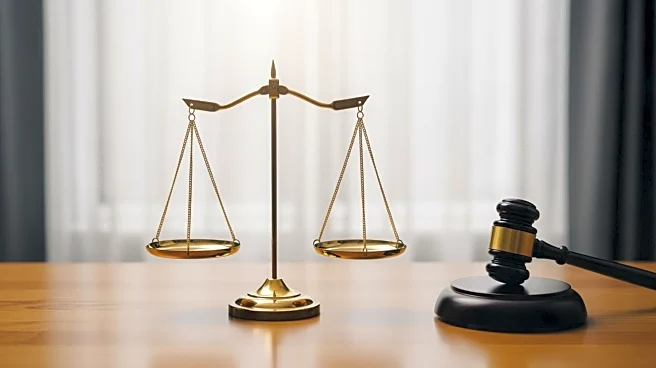What's Happening?
A Paris appeals court has decided to release former French President Nicolas Sarkozy from prison, placing him under judicial supervision. This decision comes less than three weeks after Sarkozy began serving
a five-year sentence for criminal conspiracy related to financing his 2007 election campaign with funds from Libya. Sarkozy, who was jailed on October 21, had immediately filed for early release. During a hearing conducted via video conference from Paris’ La Santé prison, Sarkozy expressed his surprise and hardship at experiencing prison at the age of 70. He has been banned from leaving French territory, and an appeal trial is expected to take place later. Sarkozy maintains his innocence, denying any wrongdoing.
Why It's Important?
The release of Nicolas Sarkozy under judicial supervision is significant as it marks a rare instance of a former French head of state being imprisoned and subsequently released. This development could have implications for French political dynamics, potentially affecting public trust in political figures and the judicial system. Sarkozy's case highlights issues of political corruption and influence peddling, which are critical concerns in maintaining the integrity of democratic institutions. The decision to release him may also influence future legal proceedings and public perception of accountability for political leaders.
What's Next?
An appeal trial is anticipated, which will further scrutinize the charges against Sarkozy and his defense. The outcome of this trial could have lasting effects on Sarkozy's political career and reputation. Additionally, the case may prompt discussions within France regarding legal reforms and the handling of political corruption cases. Stakeholders, including political leaders and civil society groups, may react to the court's decision, potentially influencing public discourse on justice and political ethics.
Beyond the Headlines
Sarkozy's release under judicial supervision raises questions about the balance between legal accountability and political influence. The case may lead to broader discussions on the ethical responsibilities of political figures and the role of the judiciary in upholding democratic values. Long-term implications could include shifts in public expectations for transparency and integrity in political processes.










